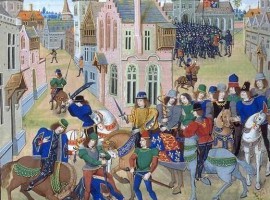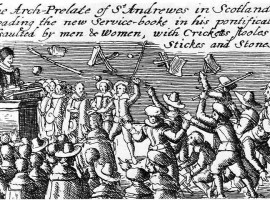Why History Matters… And Why Radical History Matters More – David Cullum
An analysis of the nature and importance of radical history in the public domain.
Commonalty and Commonweal 1381-1649 – David Rollison
Beginning with the story of a heretical hermit who, in 1357, was accused of terrorizing the respectable rich peasants of Hertfordshire and the king’s Justices by rousing the labourers of the county and preaching that the Statute of Labourers was ‘blasphemy’, this paper is a discussion of the longue durée of the labour movement in the light of recent work by social historians of late medieval and early modern England. It will include discussions of the keywords ‘commonalty’ and ‘commonweal’, of the argument that the popular rebellions of 1381, 1450, 1536 and 1549, and the ‘great rebellion’ of the sixteen-forties, belong to a single, continuously remembered and reinvented movement of the ‘commonalty’, of the original use of the term ‘proletarian’ to refer to the class of landless workers, of the role and meanings of class in English society from 1381 to 1649, and of the continuing relevance and limitations of Karl Marx’s accounts of the origins of capitalism.
Listen to this talk:
Dave Culum
Dave Rollinson


Event details
Date: , 2008
Time:
Price: Donation
With: Dave Cullum, David Rollison
Series: Off With Their Heads - Bristol Radical History Week 2008




